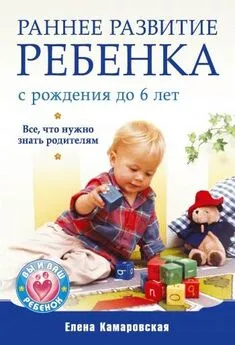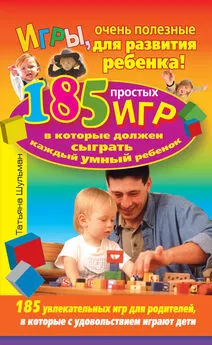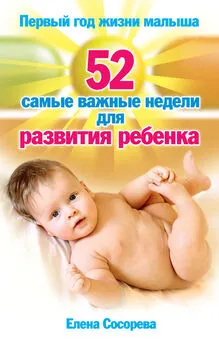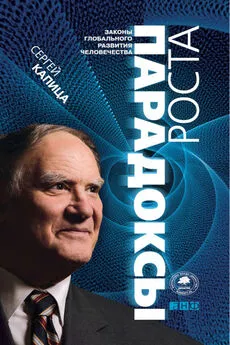Селин Альварес - Законы естественного развития ребенка, или Каких успехов можно добиться, если просто их знать
- Название:Законы естественного развития ребенка, или Каких успехов можно добиться, если просто их знать
- Автор:
- Жанр:
- Издательство:Эксмо
- Год:2018
- Город:М.
- ISBN:978-5-04-092460-8
- Рейтинг:
- Избранное:Добавить в избранное
-
Отзывы:
-
Ваша оценка:
Селин Альварес - Законы естественного развития ребенка, или Каких успехов можно добиться, если просто их знать краткое содержание
Законы естественного развития ребенка, или Каких успехов можно добиться, если просто их знать - читать онлайн бесплатно ознакомительный отрывок
Интервал:
Закладка:
152
См. «Still Face Experiments» на видео в Интернете, а также следующую работу: Tronick, E., Adamson, L. B., Als, H. & Brazelton, T. B. (1975), «Infant Emotions in Normal and Pertubated Interactions», документальный фильм, представленный на конференции Society for Research in Child Development, Denver, CO.
153
Siekkinen, M., «Empathetic Teachers Enhance Children’s Motivation for Learning», article disponible sur le site internet de l’University of Eastern Finland. Исследование «The First Steps Study» продолжается.
154
Если вы хотите получить больше информации о сопровождении в первое время, когда дети еще не совсем самостоятельны, вы можете посмотреть видео «Этапы самостоятельности» на сайте www.celinealvarez.org
155
Alvarez, C. (2014), «Pour une refondation de l’école guidée par nos enfants» (За создание школы, управляемой детьми), TEDxIsereRiver, Grenoble.
156
Имя изменено.
157
Martin, G. B. & Clark, R. D. (1987), «Distress Crying in Neonates: Species and Peer Specificity», Developmental Psychology, 18, стр. 3–9.
158
Gopnik, A., Meltzoff, A. & Kuhl, P., Comment pensent les bébés? (Как думают младенцы?), см. выше, стр. 64.
159
Zahn-Waxler, C., Radke-Yarrow, M., Wagner, E. & Chapman, M. (1992), «Development of Concern for Others», Developmental Psychology, 28, стр. 126–136; Svetlova, M., Nichols, S. R. & Brownell, C. A. (2010), «Toddlers’ Prosocial Behavior: From Instrumental to Empathic to Altruistic Helping», Child Development, 81, (6), p. 1814–1827; Hoffman, M. (janvier 2008), «Empathie et développement moral. Les émotions morales et la justice» (Эмпатия и моральное развитие. Моральные эмоции и справедливость), Presses universitaires de Grenoble (университетская пресса Гренобля), coll. «Vies sociales» (колл. «Общественная жизнь»), стр. 100.
160
Warneken, F., Tomasello, M. (2009), «The Roots of Human Altruism», Bristish Journal of Psychology, 100, стр. 455–471.
161
Там же; Warneken, F. & Tomasello, M. (2006), «Altruistic Helping in Human Infants and Young Chimpanzees», Science, 311, стр. 1301–1303; Warneken, F. (2013), «Young Children Proactively Remedy Unnoticed Accidents», Cognition, 126, (1), стр. 101–108.
162
См. видео некоторых из этих экспериментов на сайте Laboratory for Developmental Studies of Harvard University, https://software.rc.fas.harvard.edu/lds/research/warneken/video-clips/
163
Ricard M. (2013), Plaidoyer pour l’altruisme (Речь в защиту альтруизма), Pocket, стр. 270.
164
Harbaugh, W., Mayr, U. & Burghart, D., «Neural Responses to Taxation and Voluntary Giving Reveal Motives for Charitable Donations», art. cit., стр. 1622–1625; Moll, J., Krueger, F., Zahn, R., Pardini, M., de Oliveira-Souza, R. & Grafman, J., «Human Fronto-Mesolimbic Networks Guide Decisions about Charitable Donation», см. выше, стр. 15623–15628; Lecomte, J., La Bonté humaine (Человеческая доброта), см. выше; Thoits, P. A. & Hewitt, L. N., «Volunteer Work and Well-Being», art. cit., стр. 115–131; Aknin, L. B., Dunn, E. W. & Norton, M. I., «Happiness Runs in a Circular Motion: Evidence for a Positive Feedback Loop Between a Prosocial Spending Happiness», см. выше.
165
Aknin, L. B., Hamlin, J. K. & Dunn, E. W. (2012), «Giving Leads to Happiness in Young Children», PLoS ONE, 7, (6), e39211.
166
Le Disaster Research Center, de l’university of Delaware; Gilman, S. & de Lestrade, T., Vers un monde altruiste? (К альтруистическому миру?), документальный фильм, упомянутый выше.
167
Gueguen, C., Pour une enfance heureuse (За счастливое детство), см. выше.
168
Vaish, A., Carpenter, M. & Tomasello, M. (2010), «Young Children Selectively Avoid Helping People with Harmful Intentions», Child Development, 81, (6), стр. 1661–1669.
169
Bloom, P. (2013), Just Babies: The Origins of Good and Evil., Broadway Books; см. также его интервью для упомянутого выше документального фильма Vers un monde altruiste? (К альтруистическому миру?), Sylvie Gilman и Thierry de Lestrade.
170
Hamlin, J. K., Wynn, K. & Bloom, P. (2007), «Social Evaluation by Preverbal Infants», Nature, 450, (7169), стр. 557–559.
171
Hamlin, J. K. & Wynn, K. (2011), «Young Infants Prefer Prosocial to Antisocial Others», Cognitive Development, 26, (1), p. 30–39; Wynn, K. (2014), «The Discriminating Infant: Early Social Judgments and the Roots of Good and Evil», конференция в департаменте психологии университета Миссури (доступна онлайн).
172
Helwig, C. C. & Turiel, E. (2002), «Children’s Social and Moral Reasoning», in The Wiley-Blackwell Handbook of Childhood Social Development, стр. 567–583.
173
Tabibnia, G., Satpute, A. B. & Lieberman, M. D., «The Sunny Side of Fairness…», см. выше, стр. 339–347; Tabibnia, G. & Lieberman, M. D. (2007), «Fairness and Cooperation are Rewarding…», см. выше, стр. 90–101; Sanfey, A. G., Rilling, J. K., Aronson, J. A., Nystrom, L. E. & Cohen, J. — D. (2003), «The Neural Basis of Economic Decision-Making in the Ultimatum Game», Science, 300, стр. 1755–1758.
174
Warneken, E. & Tomasello, M. (2008), «Extrinsic Rewards Undermine Altruistic Tendencies in 20-Month-Olds», Developmental Psychology, 44, (6), стр. 1785–1788.
175
На сайте: www.celinealvarez.org
176
Warneken, F. & Tomasello, M., «The Roots of Human Altruism», см. выше, стр. 455–471; Swinyard, W. & Ray, M. L. (1979), «Effects of Praise and Small Requests on Receptivity to Direct-Mail Appeals», Journal of Social Psychology, 108, p. 177–184; Kraut, R. E. (1973), «Effects of Social Labeling on Giving to Charity», Journal of Experimental Social Psychology, 9, стр. 551–562; Strenta, A. & Dejong, W. (1981), «The Effect of a Prosocial Label on Helping Behavior», Social Psychology Quarterly, 44, (2), стр. 142–147; Grusec, J. E. & Redler, E. (1980), «Attribution, Reinforcement, and Altruism: A Developmental Analysis», Developmental Psychology, 16, (5), стр. 525–534.
177
Janssens, J. M. A. M. & Dekovic, M. (1997), «Child Rearing, Prosocial Moral Reasoning, and Prosoial Behaviour», International Journal of Behavioral Development, 20, (3), стр. 509–527.
178
Lee, L., Piliavin, J. A. & Call, V. R. A. (1999), «Giving Time, Money, and Blood: Similarities and Differences», Social Psychology Quarterly, 62, (3), стр. 276–290.
179
Lipscomb, T. J., Larrieu, J. A., McAllister, H. A. & Bregman, N. J. (1982), «Modeling and Chidlren’s Generosity: A Developmental Perspective», Merrill-Palmer Quarterly, 28, стр. 275–282; Presbie, R. J. & Coiteux, P. F. (1971), «Learning to Be Generous or Stingy: Imitation of Charing Behaviour as a Function of Model Generosity and Vicarious Reinforcement», Child Development, 42, (4), стр. 1033–1038; Bekkers, R. (2007), «Intergenerational Transmission of Volunteering», Acta Sociologica, 50, (2), p 99–114; Wilhelm, M. O., Brown, E., Rooney, P. M. & Steinberg, R. (2008), «The Intergenerational Transmission of Generosity», Journal of Public Economics, 92, стр. 2146–2156.
180
Whiting, B. B. & Whiting, J. W. M. (1975), Children of Six culture. A Psycocultural Analysis, Harvard University Press; Staub, E. (2003), The Psychology of Good and Evil. Why Children, Adults and Groups Help and Harm Others, Cambridge University Press, chap. 11.
181
Kochanska, G. (2002), «Mutually Responsive Orientation Between Mothers and Their Young Children: A Context for the Early Development of Conscience», Current Directions in Psychological Science, 11, (6), стр. 191–195; Kochanska, G. & Murray, K. T. (2000), «Mothers-Child Mutually Responsive Orientation and Conscience Development: From Toddler to Early School Age», Child Development, 71, (2), стр. 417–431; Kochanska, G., Aksan, N., Knaack, A. & Rhines, H. M. (2004), «Maternal Parenting and Children’s Conscience: Early Security as Moderator», Child Development, 75, (4), стр. 1229–1242.
182
Rosenberg, M. (2016), Les Mots sont des fenêtres (ou bien ce sont des murs) (Слова — это окна или все-таки стены?), La Découverte.
183
См. карту на сайте: www.celinealvarez.org/carte
Интервал:
Закладка:










